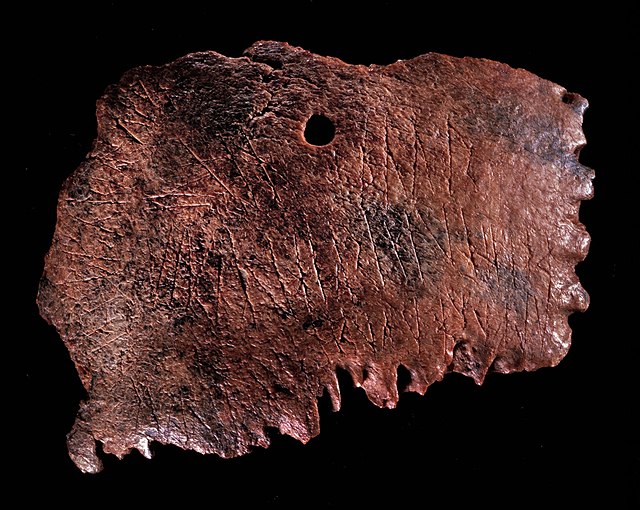In German heroic legend, Alberich is a dwarf. He features most prominently in the poems Nibelungenlied and Ortnit. He also features in the Old Norse collection of German legends called the Thidreksaga under the name Alfrikr. His name means "ruler of supernatural beings (elves)", and is equivalent to Old French Alberon or Auberon.
Alberich seduces the king's mother (a scene from Ortnit, 1480 woodcut)
Alberich (with whip) drives on the Nibelung dwarfs, who collect gold and other treasures. (Arthur Rackham, 1910)
Siegfried wrestles with Alberich (Julius Schnorr von Carolsfeld, 1843)
A dwarf is a type of supernatural being in Germanic folklore. Accounts of dwarfs vary significantly throughout history; however, they are commonly, but not exclusively, presented as living in mountains or stones and being skilled craftspeople. In early literary sources, only males are explicitly referred to as dwarfs. However, they are described as having sisters and daughters, while male and female dwarfs feature in later saga literature and folklore. Dwarfs are sometimes described as short; however, scholars have noted that this is neither explicit nor relevant to their roles in the earliest sources.
Two dwarfs as depicted in a 19th-century edition of the Poetic Edda poem Völuspá (1895) by Lorenz Frølich
Siegfried wrestling Alberich, by Julius Schnorr von Carolsfeld
Face of the Heysham hogback stone depicting four figures with upraised arms, which have been interpreted as the dwarfs Norðri, Suðri, Austri and Vestri holding up the sky
The Ribe skull fragment, dating to the 8th century CE, bearing a protective charm against either one or two dwarfs






